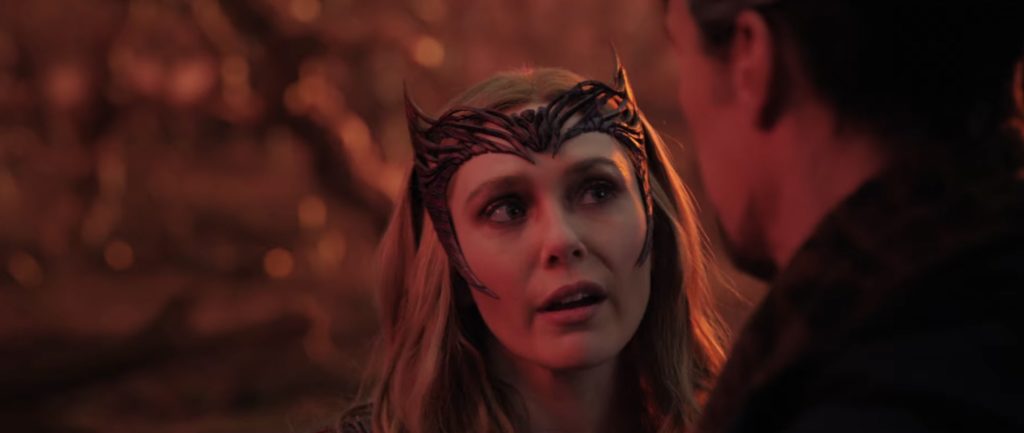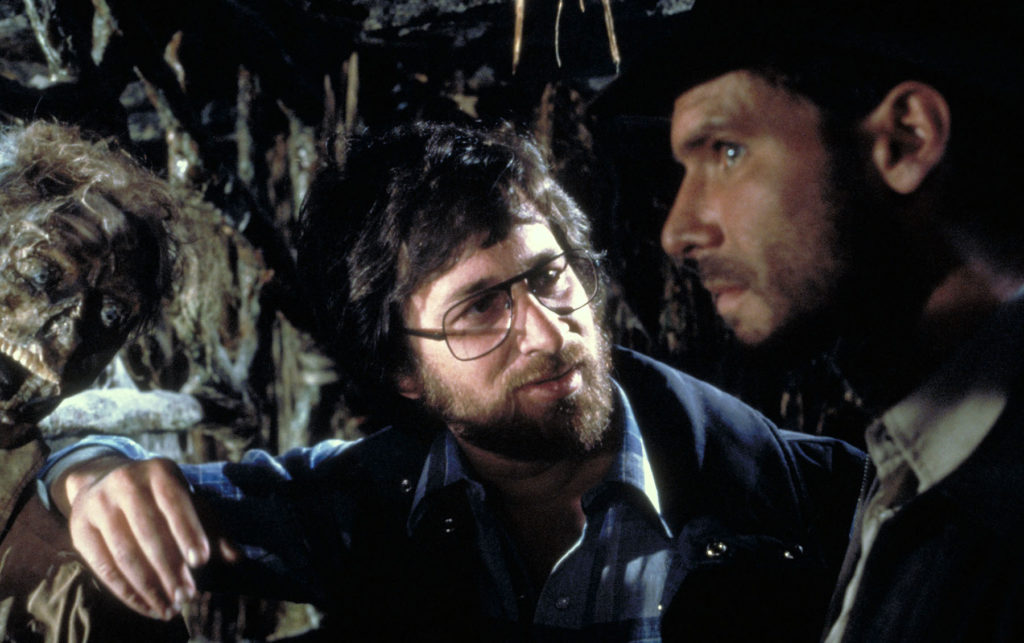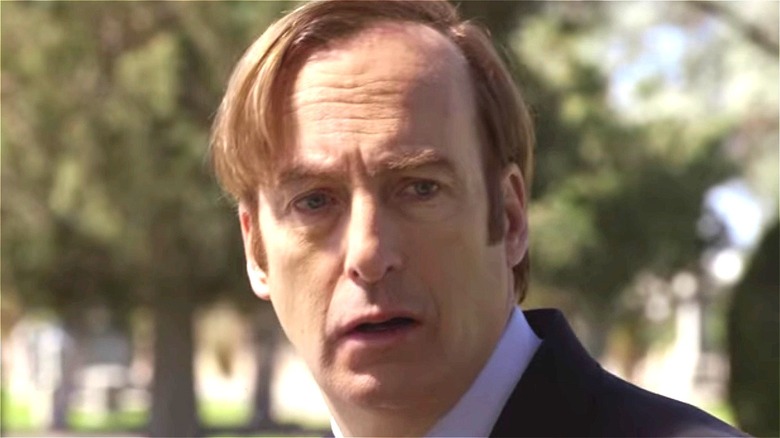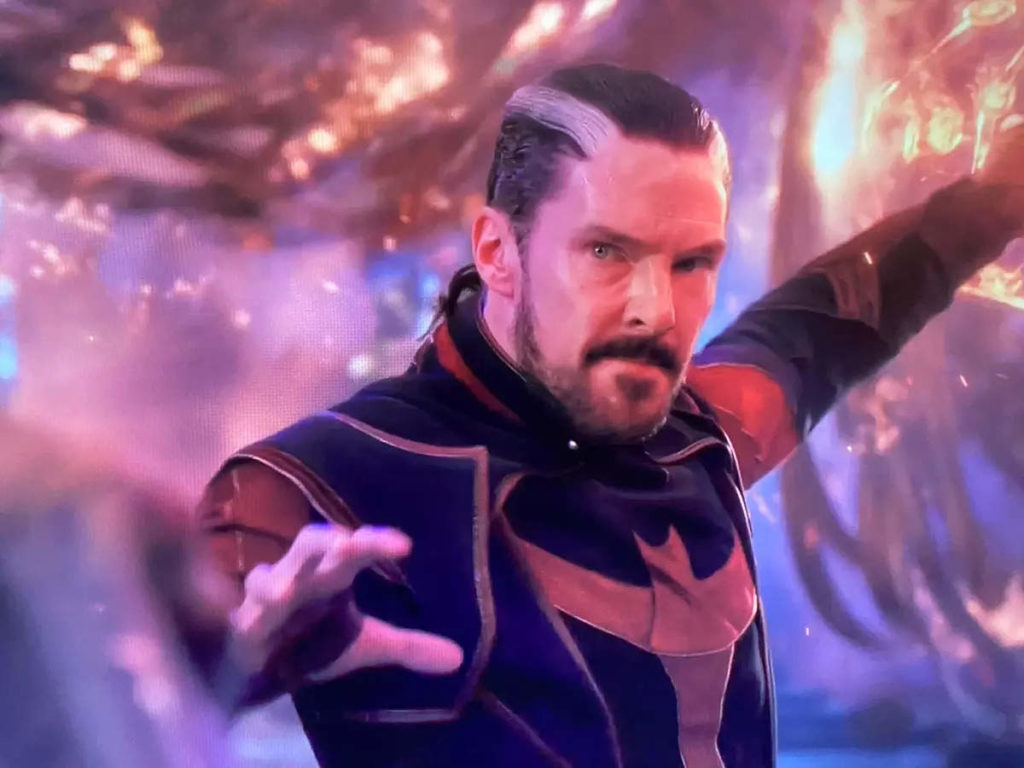Keep reading to the end to find out what I thought of the Avatar 2 trailer!
Genre: Superhero
Premise: Dr. Strange must utilize the help of a young universe-trotting superhero to defeat a fellow member of the Avengers, who’s turned into a super-psycopath.
About: How is this possible? Dr. Strange 2 pulls in a 185 million dollars! Can Marvel do no wrong? The script was written by Michael Waldron, who became a big deal a few years back when Kevin Feige fell in love with his script, “The Worst Guy Of All Time, And The Girl Who Came To Kill Him,” which I reviewed here. That script got Waldron the “Loki” series. It got him Kevin Feige’s Star Wars project. And it got him this. Of course, as we all know, writers have zero control over these Marvel films. It’s the director calling the shots. And Dr. Strange 2 sees the return of comic book movie directing icon, Sam Raimi.
Writer: Michael Waldron
Details: 2 hours and 6 minutes

We’ve got ourselves a new Marvel movie!
The summer has officially begun.
But has it begun with a whimper or a bang? And do those whispers and/or bangs exist in this universe or another one?
So many questions. I don’t know if I have the answers. But I’m going to give it my best shot!
Okay, I’ll keep this summary short and sweet. And it *will* include spoilers. You’ve been warned.
Dr. Strange is bummed out because the love of his life, Christine, just got married. But no sooner do the wedding bells ring than a giant octopus is attacking the city. So Dr. Strange goes and kills it.
He quickly finds out the octopus is from another universe, a universe that a new superhero, 16 year old Latina, America, opened. America has a special power that allows her to jump between universes.
Flash forward to Wanda, aka Scarlet Witch, who is really bummed out because she’s learned that she has kids in every single universe but this one! Since she wants kids, she wants America, since America can get her to these other universes where she can be with her kids who aren’t technically hers but rather another version of hers.
Dr. Strange needs to stop this because… well, it’s been 24 hours since I’ve seen the movie and I don’t entirely remember why he has to stop her. Probably because stealing somebody else’s kids are bad, I’d imagine.
Boy is she pissed at him about that. So mad that she attacks Dr. Strange’s Shaolin monk temple and says if they don’t give her America, or the secret book of spells that allows her to get to her not-hers-kids, then she’s going to start killing everyone. Which is exactly what she does, killing several superhero favorites. But did she kill them… or the the thems from the multiverse? Either way, she’s out for blood. And it’s going to take the most unique Dr. Strange ever to stop her.

The first thing I noticed about this movie was the opening. The opening has Dr. Strange and America running through a bizarro world set of objects floating in the sky trying to get to some treasure at the end of the path.
I thought… is this really where we are?
In 1981, we had a sequence just like this. Two people heading down a trail trying to get to a treasure. That movie was Raiders of the Lost Ark.
I was thinking, in the 40 years since this scene… have we improved on it? Or have we actually gone backwards? I would argue that we’ve gone backwards. Because the brilliance of Raiders was that everything was clear. We understood the rules (a cave with a bunch of booby traps). We were spatially aware of how the geography worked (it was one straight line). The simplicity of it is what allowed it to thrive.
This was just gobbledy-gook nonsense. I didn’t understand what Dr. Strange and America were running from, what the rules of the world were, the geography. Everything looked fake. And that’s not to say the big papier-mâché boulder in Raiders didn’t look fake. But this looked a special kind of a fake. A non-tangible fake. And that monster looked like digital scrambled eggs.
I don’t mean to be so “old man yells at cloud” here but I would bet you a million dollars that if you sat a dozen ten year-olds down in front of two TVs, one playing the opening sequence from Raiders and the other playing the opening sequence from this movie, that they’d all eventually focus on the Raiders TV.
Going into this movie, I had a simple expectation. If that expectation was met, I’d be happy. If it wasn’t, I’d be bummed. That expectation was that the film exploit the multiverse concept as much as possible. The movie is literally called, “Dr. Strange and the Multiverse of Madness.” But guess what? There is surprising little multiversing.
I thought they were gonna get stuck in a bunch of strange universes and have to find their way back. But outside of seeing a couple of quick lame universes, we end up in a world pretty much the same as our own, and that’s it. No more multiversing! And the final act takes place on some random mountain somewhere. So it didn’t matter WHAT universe we were in. Not gonna lie. Lame choice.
Luckily, the film had two good things going for it and two fun talking points. Benedict Cumberbatch and Scarlet Witch were the good things. Benedict Cumberbatch is endlessly likable. So he was fun. And Scarlet Witch turned out to be a surprisingly formidable villain. I always thought her character was kinda lame. But her psychopathic tendencies gave the villain storyline a bigger punch than it typically has in a Marvel movie.
Talking point #1 is the Illuminati sequence. In retrospect, this sequence was kind of genius. Because it introduces two characters that are really exciting to see in the Marvel Universe – Professor X and Reed Richards (leader of the Fantastic Four). You see these characters and you think, “Whoa! This is what the 20th Century Fox buy got them! We get to see these characters in Marvel movies now!” But then they completely flip those expectations on their head when they kill these titanic characters off. And, of course, it doesn’t matter that they killed them off because we’re in another universe. Those characters are still alive when we go back to earth (and therefore available for future movies). It was the perfect way for Marvel to be able to have its cake and eat it too.
Talking point #2 is Zombie Dr. Strange. I thought Zombie Dr. Strange was cleverly constructed. Somehow it made sense. And I have to give to director Sam Raimi for figuring out a way to get his favorite things – zombies – into a Marvel film in a way that actually worked.
So if I were only grading the movie on everything I’ve talked about above, I’d give it a “worth the price of admission.” Cause it was fairly entertaining. Unfortunately, there was one more element in the film that weighted it down so severely, it plummeted into “awful” territory. I’m of course talking about the character of America.
 Make it stop! Agh! I even hate that stupid jacket!
Make it stop! Agh! I even hate that stupid jacket!
I have no clue what this girl was doing in the movie. I kept thinking, “Is this one of those weird woke choices that studios are being forced to make these days?” I couldn’t figure out what was steering anyone with half a brain into including this annoying pointless reject of a character.
I thought, “Well maybe she’s there to give the younger audience someone to relate to?”
The problem with that logic is it doesn’t matter what your intentions are as a writer. If you try to force a character into a movie in an inorganic way, nobody’s going to like them. And this character never once felt like she was needed in this movie. And even if you excused that, she was just BORING. She had nothing interesting going on. No powers. No flashy backstory. No compelling inner conflict. Why was she in this movie????

Cause she’s the Jar-Jar Binks of Dr. Strange and the Multiverse of Madness. She’s the reason, when people ask me if they should see this movie, I’m going to say no. She’s straight up a dumb character and shame on Marvel if they put her in here for reasons other than trying to make the best movie possible.
I’m happy that movies like this are getting people back into the theater. But this is a bottom fourth-tier Marvel movie. It’s in the same category as the early Thor films and the Ant-Man sequel. If you have 2 and a half hours to waste, go ahead and see it. Otherwise, wait for the next Marvel offering.
[ ] What the hell did I just watch?
[x] wasn’t for me
[ ] worth the price of admission
[ ] impressive
[ ] genius
What I learned: Don’t pair your hero up with someone just to pair them up with someone. Sure, adding a co-star so that your movie is a two-hander has benefits. Giving your hero someone to bounce dialogue off of eases up the exposition load and allows for a lot more banter. But if the secondary character doesn’t have any interesting juxtaposition to the hero at all (good juxtaposition would be Thor and Starlord)… it’s better to just delete them. A two-hander is not unlike how sexual chemistry works in real life. When you and another person have sexual chemistry, there’s a spark that provides an exciting energy to your interactions. When you don’t, there’s a deadness to your conversation. It lacks impact. Same thing when writing two-handers. If the chemistry isn’t there, drop the second character. Cause Doctor Strange 2 is evidence of what happens when you try to force a two-hander. It’s paaaaaainful.
BONUS: THOUGHTS ON AVATAR 2 TRAILER!
![]()
I thought this trailer was amazing considering that Cameron is clearly only including footage from the first ten minutes of the movie. This isn’t even a traditional teaser. This is whatever precedes a teaser. It’s basically footage set to music. The difference being that the footage is accumulated from ten years of research and development along with a new industry-changing digital technology.
Surprisingly, there isn’t a whole lot of underwater footage. We get some shots of the human base on Pandora, which has gotten a lot bigger. We get some shots of the jungle. We get people swimming just under the surface. Nothing crazy. But the thing that stuck with me the most was the music. It had this traditional etherial sound but Cameron has tweaked it so that the ends of each note slither, like tendrils, into your body, latching onto your soul and shaking it. I know that’s a big statement but it’s true. Cameron is a master and understands that nothing can be left to chance. He makes sure that even the music – something no fan’s been thinking about during Avatar’s decades-long production – is great. That sound alone makes me believe this is going to be an epic story.
If I were to guess what the plot was, I’d say that the humans are trying to exterminate the remaining pockets of Na’Vi resistance, which is why the Na’Vi have moved underwater, since it’s harder for the humans to fight them there. A part of me wishes a third foe would arrive so the humans and Na’Vi had to work together to stop them. But I’m not seeing anything in this trailer that would lead me to believe that’s part of the plot.
I think Avatar 2 is going to be one of those movies that shakes the industry up. Because for the last ten years, Marvels’ been cranking movies out on an assembly line. And they look crappy. Marvel movies work because of the characters, not because you’re like, “Wow, those were amazing special effects.” Then you had Netflix, which was pumping out films too fast for any serious quality control. So the industry has gotten used to these sloppy-looking movies and just shrugged their shoulders and said, “That’s just the way it’s done now.”
Avatar 2 is a movie where every single frame will have been relentlessly poured over by Cameron himself so that it looks beautiful. Audiences are going to be wowed by that and Marvel’s going to have a come-to-Jesus moment where they can’t give us special effects that are indistinguishable from hiring some nameless programmer on Fiver.
And that’s a good thing. Cause if there’s anything Doctor Strange 2 taught me? It’s that Marvel is getting too sloppy. Nothing like a new movie from the master to remind everyone where the bar should be placed. :)

So late last month, a little known E.T. story started making the rounds. Steven Spielberg had finished 1941 and was currently on production of Raiders of the Lost Ark. Like any smart director, he was lining up his next film, E.T., and needed a writer. As luck would have it, he wanted a young writer named Melissa Mathison, who was his star’s (Harrison Ford) girlfriend at the time.
This is where the story gets interesting. Spielberg pitched Mathison the idea for E.T. and Mathison said no, she didn’t get it. I just want to pause here so we can all hear the galactic level record scratch of a writer SAYING NO TO STEVEN SPIELBERG! In Mathison’s defense, she had a good reason for the rejection. She’d just quit screenwriting.
Between her two lone credits, The Black Stallion and The Escape Artist, Mathison had decided that screenwriting was “too hard.” In retrospect, Mathison’s early retirement never stood a chance. Spielberg went straight to Ford, asked him to put in a good word for him and E.T., and Mathison eventually came around to write the film. For all involved, it was ‘happily ever after.’

However, Mathison’s reason for the initial rejection stuck with me. She quit screenwriting, at just 31 years old and with two produced credits, because it was “too hard.”
“Too hard.”
Is screenwriting “too hard?”
It sure seems easy when you’re watching a bad movie. “I could write a better movie than that!” somewhere north of 100 million moviegoers have said over the years.
But anyone who’s spent even three years in the game knows how deceptively difficult screenwriting is.
But is it too hard?
Is it not worth the trouble?
A while ago I was developing a sports script with a writer and we’d spent countless hours and many drafts trying to figure out our main character. It seemed like every new draft, we tried a new iteration of the character. After about draft 7, the character finally started to take shape. We finally felt like we understood him, and the rest of the script came together nicely as a result.
Then, around draft 10, as we were writing the big final game, it occurred to us that the ending would be MUCH BETTER if our main character made a major sacrifice at a critical point late in the game. We’re talking, the climax went from being a 6 out of 10 to a 9 out of 10. The change was a no-brainer. We had to do it.
But here was the problem. Our main character was not someone who sacrificed. Nowhere in the script was this built into the character so that when the moment came, it would make sense for him to sacrifice anything.
What we realized was, if we were to write this new direction into the climax, it would mean completely redesigning the character from the ground up. He’d have a totally different personality and demeanor. Which would make all of his actions and dialogue different.
On top of that, we’d designed the love interest to be in stark contrast to our main character. She was his opposite. By changing the main character into this new version, he was no longer the opposite of the love interest. Which meant – as I’m sure you’ve already figured out – we’d have to completely rewrite her as well! Change her from the ground up so that this new version of her was opposite to the new version of him.
So now we had to sit down and make a difficult decision. Do we make all these changes, redesigning our two main characters from the ground up, just to support this awesome ending? Or do we continue to try and find another great ending, despite the fact that we’d spent the previous six months doing just that and failing?
Is screenwriting hard?
If you’re doing it right, you bet your ass it’s hard.
So I get Melissa Mathison. I totally understand where she was coming from. Because a script can feel like a never-ending battle. In a way, you never truly write the script you want. You either run out of steam or, if you’re one of the blessed few who have made it to the professional ranks, they need to start shooting.
With that said, I have found some tips and tricks over the years to make the experience of writing screenplays a little easier. If you incorporate these ten tips, you’re going to keep more hairs on your head, and severely lower your chances of having a heart attack.
Outline – One of the things that causes so much pain in screenwriting is all the drafts. You’re always having to fix some aspect of the script with a rewrite. You can knock about 3-4 drafts off that process if you outline. In particular, outlining helps you figure out your structure ahead of time, which means spending less drafts fixing your broken structure.
Make sure you understand your 2-3 main characters as clearly as possible going into the script – The hardest thing about screenwriting is getting the characters right. That’s because people are complex and creating fictional versions of them that feel authentic takes an incredible amount of skill. Therefore, if you have a great feel for your characters going in, you eliminate a lot of headaches later on. Rocky is an underdog who doesn’t know if he has what it takes. Alan in The Hangover is the most socially unaware overly opinionated man in the universe. Guy (Free Guy) is tired of following the same old routine every day and decides he’s going to commit to doing things outside his comfort zone. Just like these examples, try and distill your character down to a single clear sentence. If you can do that, you should be good.

Keep your story simple – I read a lot of “everything-and-the-kitchen-sink” scripts where the writer is shooting themselves in the foot by giving themselves a massive amount of variables to keep track of. The reality is, most of the best movies have a simple setup and execution. Small character count. Clear goal. Etc. By keeping the variables down, you’ll keep the stress level down.
Be passionate about your concept – As much as I talk about finding the best idea you can come up with and writing it, that’s worthless advice unless you love the idea. As most of us here can attest to, there is nothing worse than writing a script you’re only kinda into. Every draft feels like five drafts. These scripts take way more out of you and will definitely accelerate any doubts you have about whether screenwriting is for you. Love that idea like you love your family.
Write lean – If you tend to write 4-line paragraphs, aim for 3 lines. If you tend to write 3-line paragraphs, aim for 2 lines. Writing lean means there are less words to edit and since we’re all writers and obsessive about making every little sentence perfect, the less words you have to wade through, the less hassle writing is going to be. As a bonus, your script is easier to read through.
Don’t deliberately make the process overwhelming – You’ve got a document detailing all the characters in your script, a document for your potential story ideas to use, you’ve got your outline, an excel spreadsheet tracking when and where every character appears, you’ve got a document for alternate scenes, a document for deleted scenes, a document explaining the alien language spoken in your script… If all these things make you genuinely happy, fine. But, at a certain point, we make the process of writing a script so cumbersome, that we start to hate the idea of working on it. It’s fine to get detailed. But don’t get carried away.
Focus on the things you should do, not the things you shouldn’t – I know reading this site can sometimes feel like a never-ending mine field of screenwriting bombs to avoid. But if all you’re doing is focusing on mistakes to avoid, you can’t write freely and you won’t have fun. You are always going to do things in your script that “shouldn’t be done,” like yesterday’s choice to make the protagonist a kidnapper. But as long as you feel it’s right for your story, embrace it and don’t look back.
Talk it out – Find someone in your life who will listen to you talk out the problems in your screenplay. One of the reasons writing is so hard is that we contain ourselves to just our brain and run the same problems through that calculator over and over and over again with no result. Of course writing starts to feel impossible (and drives you crazy!). Sometimes you need to talk your ideas out with someone, even if they’re not a screenwriter. By forcing yourself to explain the issue to a third party, you see the problem through their eyes, and that alone helps you find a solution.
Focus on the stuff that matters – Stop stressing about that exposition scene on page 70 where you’re trying to make each dialogue line perfect. Instead, focus on the things in your script that have the biggest impact on the read. The first ten pages, the first act turn, the midpoint shift, the story’s big set pieces, the hero’s low point, any major twist scene, the climax. That’s where you should be placing 75% of your focus. You don’t need to drive yourself crazy over those smaller scenes where the characters reveal some mildly significant backstory about themselves. In the grand scheme of a screenplay, those scenes are way down on the priority list.
Be easy on yourself – Screenwriting is hard no matter what you do. It’s baked into the pursuit. However, I think that’s why we do it. We know that in those few moments where we do crack the code and write a good script, we’ve achieved something amazing, something that very few people on the planet can do. Who cares if you achieve something that’s easy, right? You only feel a sense of accomplishment when you’ve achieved something that’s hard. Maybe even too hard. :)
What’s your take on this? Is screenwriting too hard?
Having concerns about your logline or screenplay? Let me help you. Logline consults are just $25 (and if you buy 4, you get a 5th for free). I also provide consultations for each stage of the screenplay journey: outline ($99), first 10 pages ($75), first act ($149), full pilot ($399), full screenplay ($499). I’ve read thousands of screenplays, including all the ones that get produced and all the ones that don’t. There’s no one better equipped to help you improve your script than me. If you’re interested in getting a consultation, e-mail me at carsonreeves1@gmail.com and let’s work together!
Genre: Crime/Thriller
Premise: When his young son is viciously murdered by a classmate, a grieving father with a history of violence kidnaps the child responsible, igniting a frenzied manhunt fueled by a powerful politician — the father of the kidnapped boy.
About: This script made last year’s Black List with nine votes. A year earlier, it made the semi-finals of the Nicholl Fellowship. A reader from that contest characterized the script this way: “Barron’s Cove is probably the bleakest screenplay I’ve ever read. Its bleakness is only surpassed by its quality.”
Writer: Evan Ari Kelman
Details: 119 pages
 Jesse Plemons for Caleb?
Jesse Plemons for Caleb?
We’ve got a wild one today.
I don’t think I’ve ever read a script quite like this.
It’s Mystic River meets Prisoners by way of Taylor Sheridan.
But it’s also a new writer. And that newness is reflected in the storytelling, which at times soars but at other times, is eye-poppingly inconsistent.
I’m still not sure what to make of Barron’s Cove. But I can promise you it’s one of the more interesting scripts on the Black List.
36 year old Caleb Faulkner is a hit man for his uncle, Benji. But Caleb isn’t one of those fancy-schmancy hit men, the kind with smooth bald heads who wear Armani suits. He’s the backwoods type – the bearded blue-collar Ozarky hit man.
One evening, when Caleb goes to pick up his son, Barron, from his ex-wife, she stares back at him with confused eyes. “I thought you had him.” After their confusion subsides, the hunt is on to find out where Barron is. The news is not good as the cops get word that a 10 year old boy was strapped to the train tracks and got run over by a freaking train. Doesn’t take long to confirm it was Barron.
Caleb quickly finds out that two kids were out with Barron that day, Alex and Phillip. And all Caleb has to do is see Alex once to know he was responsible. In one of the craziest scenes I read this year, Caleb goes to Alex’s school and chases him THROUGH THE SCHOOL T-1000 style with everyone standing around watching. He catches him, throws him in his trunk, and heads upstate.
What Caleb doesn’t entirely understand is that Alex is the adopted son of Lyle Chambers, who’s about to become a state senator. So Lyle immediately mobilizes the might of the state to find Caleb and his son.
Except it’s much more complicated than that. You see, Lyle has a backroom deal with Benji once he gets elected. So Benji is now secretly helping Lyle take his nephew down. Oh, and as Alex will later reveal to Caleb, Lyle is a serial child abuser. So Alex doesn’t want to go back to his father. In fact, the only reason Lyle adopted Alex in the first place was to make him a more sympathetic candidate.
In fact, the further down the rabbit hole we go, the more we realize that there are no clean answers here. Barron’s Cove leaves you unsure who to root for at every turn. All the way up to the heartbreaking ending.
As I’ve said north of a quarter-million times on this site, you gotta do something different with your script in order to stand out. You gotta take risks – the type of risks that get some agents and producers telling you, “You can’t do that.”
I’ll be honest, if this logline would’ve landed on my desk, I probably would’ve told the writer, “You can’t write a story where the protagonist kidnaps a child with the intent to torture and kill him.” It’s just too hard to get an audience on your side.
Kelman clearly knew this so he went into kick-the-dog mode in building the character of Alex, the kid who may or may not have killed Barron. Alex is evil incarnate. He’s just a bad kid. When Caleb first confronts him, Alex gleefully tells Caleb that Barron killed himself because he hated his father. He repeatedly antagonizes Caleb and has zero remorse for what happened.
Kelman walks that tightrope for a while, but seems to understand that you can’t walk it too far. So, eventually, Caleb starts to feel bad about Alex and his abusive father, and backs down with the threats.
Eventually they come to a truce where if Caleb can get Alex to freedom, away from his abusive father forever, Alex will tell him what happened that day on the tracks. It’s not the easiest narrative to buy into. This kid has zero leverage so it’s hard to believe he’s calling the shots. But we go along with it for the most part.
The script does a great job keeping you guessing til the end. Even though we figure out what’s happened by the midpoint, there are still several questions as to why it happened that may have been out of Alex’s hands. I really had no idea where this was all going to end, especially with the wild card that was Benji. At one point he sends hit men to kill both Caleb and Alex, and we’re thinking, “What’s going on right now?!?”
While the script doesn’t have that big splashy final twist that, I believe, it hinted was coming. It does give us a final motivation for the kill that makes sense. A satisfying ending that I didn’t think was coming as I figured the writer had painted himself into too deep of a corner.
Oh, one more thing I want to highlight here – the school kidnap scene. In my opinion, every script worth its weight needs to have ONE GREAT SCENE. You should be trying to write more than that. But you definitely need at least one. Because what a great scene does is it sticks in a producer’s head and that producer really really really wants to see that scene come to life. It very well may be the motivator for the script to get sold and made.
This school kidnap scene was great for the simple reason that the writer did something THAT HAS NEVER BEEN DONE BEFORE. Every single time there’s a kidnap scene at a school – and I’ve read tons of them – it’s always the kidnapper sneaking around the outskirts of the school, luring the kid over with a lie or the promise of something, then when no one’s looking, grabbing them and throwing them in their car.
Whenever you enter a common scenario as a screenwriter, one of the first questions you should ask yourself is, “How can I make this different?” And here’s a pro-tip for you. Your first option should be to ask, “What if I did the complete opposite of what everybody else does?” Because the complete opposite will always be jarring. The thing is, it usually doesn’t work because it doesn’t make logical sense.
But what Kelman realized here was that, for first time in history, the kidnapper was the “good guy.” Once you shift that, it opens up new possibilities for the scene that you didn’t have before. Since we’re kind of rooting for Caleb, doing the complete opposite of what a writer would normally do in this scenario actually makes sense. Which is why we get this great shocking scene. At one point, Caleb is literally chasing Alex over lunch tables with hundreds of students and dozens of faculty around. That’s going to be a great scene.
The only question with this movie is… is it so offbeat that people just aren’t going to be able handle it? Either way, it’s an entertaining screenplay. It’s different. And for that reason, I say it’s worth checking out.
[ ] What the hell did I just read?
[ ] wasn’t for me
[x] worth the read
[ ] impressive
[ ] genius
What I learned: You have to be careful with writing kids like adults. I’m not talking about the precocious kids that are in every romantic comedy. I’m talking just normal kids in movies like this. There’s this tendency to bring their level of sophistication up to that of an adult to keep the dialogue sharp. Alex bordered on that a lot. For example, Caleb tells this deep intense story about being responsible for his brother’s death when he was younger. Alex – WHO’S 10 YEARS OLD MIND YOU – replies to this story with the line: “Do we have to be the worst thing we’ve ever done?” I mean come on. I’m not saying Alex needs to reply with, “Can I have a popsicle now?” But no kid has the emotional or psychological intelligence to come up with that kind of thought.
Is ‘Straight Man,’ Bob Odenkirk’s attempt to create his own Big Lebowski?
Genre: Dark Comedy
Premise: An aimless professor at a backwoods university creates a stir when he threatens to exterminate the local duck population if his college doesn’t get its act together and provide his department with a budget.
About: This is the big AMC project that will keep Bob Odenkirk in the fold after Better Call Saul. The book was written by Richard Russo in 1997. It’s being led by Aaron Zelman (supervising producer on Silicon Valley) and Paul Lieberstein (HR rep and Michael Scott foil, Toby Flenderstein, from The Office). Peter Farrelly (There’s Something About Mary, Green Book) will direct several episodes.
Writer: Richard Russo
Details: 391 pages

Since this may appear to be a strange project for a review, let me give you some quick background. Richard Russo’s novel, “Empire Falls,” is one of my favorite books. It would go on to win the Pulitzer Prize in 2001 and continues to hold a special place in my mind/heart library.
For reasons I don’t have an answer for, I’ve never read another Russo novel. Flash-forward to last week, and I saw that Bob Odenkirk had picked his next project with Better Call Saul ending. It was the Richard Russo book, “Straight Man.” It seemed like the perfect excuse to finally read another Russo story. So with that out of the way, let’s see if it’s any good!
“Straight Man” – A straight man is a member of a comedy act who plays a stooge, feed, or foil.
Our story, which takes place over one week, follows 49 year old William Henry Devereaux, Jr. a once famous author who wrote a New York Times best seller 20 years ago. But today William is an English professor at West Central Pennsylvania University who seems to be the only person in his department who isn’t worried about the impending budget cuts, cuts that most surely will result in the firing of several professors.
William has other things on his mind, such as his extremely successful author father moving back into town after having a mental breakdown. There’s also his wife, who sees him less as a husband every day than a child who needs to be taken care of. Then there’s William’s own child, his adult daughter, Julie, who moves back into his house after her seemingly sweet husband may or may not have hit her.
As the week goes on, more and more professors keep coming to William, wanting to know if they’re safe from the budget cuts. William finally has a mini-breakdown at a local park. Spotting a news crew doing a story, William grabs a goose by the neck and holds it up until the cameras are pointing at him. He then says he’s going to kill one “duck” a day starting next week until West Central Pennsylvania University gives him a budget. The fact that a man would make such a crazed demand and not understand the difference between a duck and a goose results in the video going viral (or “1997 viral”), where it ends up on Good Morning America.
This causes a stir in the school’s ecosystem. Some want William fired. Others think his outburst was productive, as it will put more pressure on the college to deliver a budget. William doesn’t seem too bothered by it, even as PETA moves into town to protest his actions. He’s more worried about his decreasing ability to pee (he fears a kidney stone may be forming). And if you’re wondering just how much play peeing gets in this novel, I’ll put it this way: More than in any other novel in history.
In the meantime, William attempts to fend off all the romantic feelings he has for his female professors and mentally prepare for the arrival of his father. He never takes any of it too seriously as William often sees life as one big joke. In a pivotal moment near the end of the story, someone frustratedly asks William, “What is it you *want*?” William doesn’t know the answer to that question. And, unfortunately, neither do we. The End.

Boy.
There’s a lot to say about this novel. It’s meandering. It’s frustrating. It thinks it’s funnier than it is.
Probably the worst thing about it is the lack of a plot. I understand that a lot of novel writers don’t care much for plot but jeez. Make SOMETHING happen. Just to give you an idea of how slowly everything moves in this story, we get our first indication that William needs to see a doctor about his urinary issues on page 75 and then don’t take our first doctor’s visit UNTIL PAGE 250!
And don’t get me started on the dad stuff. We never even meet the dad! We just keep hearing about him and hearing about him and hearing about him. But no dad! What an odd choice.
Nor do I think the novel’s main comedic storyline – William holding a goose by its neck and threatening to kill it – is going to go over as funny as the author, and apparently, Odenkirk, think it will. In screenwriting, your hero is supposed to save the cat, not kill it. Threatening to kill an animal is a surefire way to kill audience interest. Even in a comedy.
Another issue is that the main character doesn’t want anything. Your character has to want SOMETHING. To instead want nothing makes them uninteresting as a person and uninteresting as a character, since the lack of wanting anything ensures that they won’t be active. Indeed, William is highly inactive. He essentially stumbles around all day thinking about pointless nonsense.
So then what did Odenkirk see in this?
Well, if I were arguing FOR this novel, I would point out a few things. One, I like the real-time approach to the story. Russo seemed to understand, at least on some level, that his story could be perceived as boring, since there’s no plot. So by condensing everything into a single week, he was able to keep a stream of momentum that, at least, feigned structure.
Russo is also great at creating fully-fleshed out interesting characters. His best work in this novel is chronicling all these weirdo professors. One of my favorites was a fellow annoying professor who was such a devoted feminist that whenever a student used a masculine pronoun, he would always correct them by saying, “Or she.” He would do this to such an extent that everyone eventually began calling him, “Professor Orshee.”
Russo can also be quite witty at times. While jawing with a fellow professor, they say to William, “I hear you don’t write anymore.” “Not true. You should see the margins of my student papers.” “Not the same as writing a book though, right?” “Almost identical. Both go largely unread.”
And he has the occasional keen observation, some of which are more relevant today than they were in 1997: “I can’t remember the last time anyone changed his mind as a result of reasoned discourse. Anyone who observed us would conclude the purpose of all academic discussion was to provide the grounds for becoming further entrenched in our original positions.”
And I think I know why Odenkirk wanted to play this character. This is his Jeffrey Lebowski. This is his, “The Dude.” Without question. William’s a lunkheaded but sweet doofus who just wants everyone to leave him alone.
But Zelman and Lieberstein should take note of why the character of Lebowski worked. Remember, characters who don’t want to do anything in life aren’t interesting in a vacuum. They’re only interesting when they are forced to do something that they don’t want to do. That conflict is what creates the humor: a guy who doesn’t want to do a damn thing is forced to do lots of things.
You get a little of that in Straight Man. Annoying professors keep bothering William. But you don’t have it like Lebowski had it. Lebowski was forced to go on this entire adventure in order to be reimbursed for his ruined rug. There was more of an ongoing resistance he had to deal with and the stakes were much higher in regards to that resistance. Here, every time William has to do something he doesn’t want to do, it’s a minor inconvenience – some annoying student he doesn’t want to talk to, for example.
I know that TV doesn’t need plot the same way features need plot. But I worry people are going to think this character is boring because he doesn’t pursue anything, doesn’t want anything, and is never engaged in anything. He’s (or She’s) like a pinball that keeps getting knocked around with no agency unto himself. Can that work? I guess we’ll see.
[ ] What the hell did I just read?
[x] wasn’t for me
[ ] worth the read
[ ] impressive
[ ] genius
What I learned: If you don’t have a plot, make sure you have a ton of characters who are all up in your protagonist’s grill wanting different things. This will, at least, ensure that your character is always having to deal with something. This is what Straight Man did well. The second William was done talking to one character, another character called him, or another character wanted to talk to him, or he had a meeting across campus with another character. While this doesn’t supplant the fact that there’s no plot, it at least makes it less of an issue.
![]()
It is 6pm Pacific time on Sunday, May 1, as I am posting this. That means you have exactly SIX HOURS to get your first act in for my First Act Contest (11:59pm Pacific Time!). I’d love to see you enter so hurry up and finish!
Okay, it looks like my review of Everything Everywhere All At Once created a cosmic level of interest about the film as everybody rushed to the theater and, in a first since the pandemic began, a wide release film made MORE money than its previous weekend, taking in 5 million dollars. The film has now grossed 35 mil, which is HUUUUUGE for an indie film. Go out and see it if you haven’t already.
I don’t think “Everything” is going to pull off that feat two weekends in a row, unfortunately, as this Friday we get our first giant release of the summer, Dr. Strange and the Multiverse of Madness. I have to give it to Marvel. I was planning on skipping this one. Despite enjoying the first film, this one felt like small potatoes compared to the recently released Batman and Spider-Man movies.
But now there are supposed to be all these cameos and darn it if I’m not a sucker for superhero cameos! Marvel is so smart. This is exactly what they used to do in their comics and they’re bringing it to the movies and gosh golly I can’t lie. It’s working!

But let’s be honest. What pushed me over the edge was the Avatar 2 trailer. Smart on both Disney’s and Cameron’s part to keep the trailer a theaters-only experience. I know it’s going to piss off the Gen-Zs and the Gen-YYs because they’ve never had to go to a theater to see anything in their lives, especially movies. But this movie is going to be a mega-event so you want to treat it that way from the start: Avatar 2 is a THEATRICAL EXPERIENCE.
I’m surprised, however, to hear people throwing shade at Cameron. They say nobody cares about Avatar anymore. They say it’s become a joke. Let me educate you people really fast: NEVER EVER DOUBT JAMES CAMERON. Ever. You lose every time.
Cameron had the entire Hollywood trade industry and Los Angeles media doing everything in their power to sink his Titanic production. Every day they gleefully tapped away on their IBM typewriters, betting it wouldn’t just be a failed movie, but that it would actually take down 20th Century Fox, the studio itself!

The funny thing is that they weren’t just wrong. They were as wrong as you could possibly be. They predicted it would be the biggest bomb in history and it literally became the biggest hit in history.
Flash-forward to Avatar and the infamous footage-screening incident where journalists crowed that they’d just watched a live-action adaptation of The Smurfs. Yeah, um, didn’t turn out too well you guys either, huh, as I’m pretty sure Avatar is, currently, the biggest box office hit of all time. Not even a film with all the superheroes in the world could dethrone it.
Probably the biggest surprise about Avatar 2 is that it’s actually coming out THIS YEAR. December 16th. It’s happening. An actual Avatar 2 movie is going to be available. Wow.
That’s not to say I don’t have questions. I didn’t think any of the underwater scenes in Aquaman looked very good. To set an entire movie underwater… I’m curious how that’s going to look visually and if the viewer is going to tire of it. Because moving around in water is slower, right? So is everyone going to look like they’re moving in slow motion the whole movie?
Or is there going to be a Gungan-like underwater city that people and Na’vi can walk around in?
I guess I’m going to defer to myself here. NEVER EVER DOUBT JAMES CAMERON. We’ll leave it at that for now. But I’ll surely have more to report to you next Monday.
The other big news in the industry is what’s happening at Netflix. The honeymoon is definitely over. We saw the first tangible evidence of that last week when they cancelled one of their high-profile (and high budget) shows, Space Force.

From a screenwriting perspective, the tale of Space Force is a fascinating one. Because, if you remember, the White House announced its assembling of the real Space Force on a Monday. And then two days later, Greg Daniels announces a deal with Netflix for a Space Force show.
The rumor is that Greg and Steve Carrell bumped into each other in the Netflix lobby, talked about the Space Force news like everyone else was doing at the time, mentioned how it would be funny if that was a show, then decided to go up and pitch it to the Netflix execs right then and there. It was famously bought right away, with Carell getting a million an episode, and off they went to make it.
I fault both parties here but I fault Daniels and Carrell more because they’re the ones who know that writing is hard and that ideas need incubation periods. They need to be tested. They need to feel just as exciting in a month as they did on the first day. And they need to be more than just an idea.
Space Force is one of those classic bad ideas disguised as a good idea. For any idea to be good, it can’t just sound good. There has to be a plan of execution in place. You have to see if the story has legs beyond the smile you get after hearing it.
Another classic bad idea disguised as a good idea was Flatliners. It’s a great high-concept pitch. A group of medical students try to find out what lies beyond life by killing (flatlining) themselves. Unfortunately, there’s nothing beyond that pitch. You flatline yourself and… what? No matter what you come up with, it’s stupid.
Space Force never had legs. And that’s because they never thought about the legs when they pitched it. If you haven’t seen this show – I mean wow – it’s bad. I’m talking really really horrible. I’m talking aggressively unfunny. The biggest problem with it is that they had no idea what to do with Carrell’s character. It was unclear who he was or what was supposed to be funny about him.

The reason The Office was such a great show is because it was built on the perfect character – a boss who badly wanted to be liked by his employees. 90% of the jokes were built around that premise. Space Force didn’t have a clear comedic angle for its hero so there were no jokes to build around him. This left the writers languishing, looking for jokes inside every corner and behind every crevice they could find, which is why the humor felt so desperate.
On top of that, it’s not clear what the show even is. It’s supposed to be parodying the real Space Force, except nobody’s heard anything about the real Space Force since the week it was introduced, which means the show is just making up a fictional random version of Space Force based on nothing. It’s hard to imagine people who’ve had as much success as Daniels and Carrell making a mistake this big.
Luckily, there is a lesson for screenwriters everywhere to take from this: Don’t rush an idea. Don’t spend three months writing a screenplay for an idea you just came up with yesterday. You need time to see if you’re still excited about the idea a month from now. And you need time to flesh the idea out. See if there’s an actual story to tell.
The cancellation of Space Force is symbolic. For years now, Netflix has been flexing their might to everyone, saying, “We have so much more money than you, we don’t care if 100 million dollar investments don’t work out.” They even went a step further with the second season of Space Force and said, “We’re even going to renew a 100 million dollar show THAT NO ONE IS WATCHING! That’s how powerful we are!”
To finally put the kibosh on Space Force is Netflix finally admitting, “Our model does not work.” But I’d say its cancellation signifies something even worse. One of the big reasons everyone wanted to work at Netflix in the first place is that they let you do your thing without interference. There was no development. No notes. It was just: Go mad!
But what they didn’t realize by doing this was that they were establishing a reputation as a place you didn’t need to bring your quality ideas to. Once you establish that a place says yes to whatever you think up, regardless of quality, you get situations like two people in the lobby coming up with an idea on the spot and actually believing they can sell it to you ten minutes later.
Since they know nobody is going to check their shit later on during development, they know they can literally get away with pitching an idea that has zero legs, hoping they’ll be able to “figure it out” later. Which is exactly what Space Force feels like when you watch it. It feels like everyone, from the writers to the actors, is desperately trying to figure out what the show is. That always happens on some level. But it happens way less when a show has been through the development ringer and all the show’s worst qualities have been stripped away.
The industry is struggling to understand what all of this means. Agents, creators, and writers are not happy because the Netflix gravy train has been shifted over to a maintenance track. Just about everyone else, though, is cheering as loud as they can. Netflix is seen by rivals as pure evil and this giant hiccup confirms what many of them believed, which is that Netflix has zero IP and, so, sooner or later, that would catch up to them, and, in the process, confirm that the legacy studios aren’t the dinosaurs they were assumed to be.
I’m not sure what to make of this either. I mean, am I really all that thrilled that the side that gave us Sonic 2: Tails and Sonic Unite won a round? Am I really all that thrilled that Netflix has less money for writers? Not really.
But as a spectator, I’m definitely curious what happens next. We shall see!

